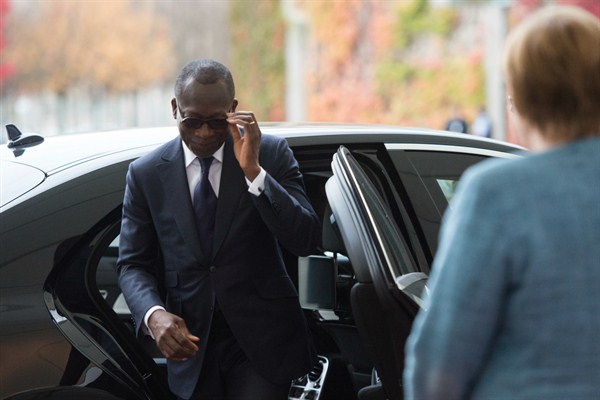Thousands of supporters of Benin’s political opposition flooded the streets of the country’s largest city, Cotonou, on Monday, bearing flags, vuvuzelas and banners with slogans denouncing the government. But while the country is set to hold legislative elections next month, the rally was not a standard show of support to get out the vote. Rather, its organizers were demanding something more fundamental: that opposition political parties be allowed to participate at all.
Because of changes to Benin’s electoral rules, only two parties have met the requirements to field candidates for the polls scheduled for April 28, and both of them back President Patrice Talon. Among the excluded parties is the Cowry Forces for an Emerging Benin, which is allied with former President Thomas Boni Yayi and claimed the most seats—33 of 83 total—in the last legislative elections in 2015.
Talon has described the exclusion of the opposition from next month’s elections as “unfortunate.” Yet the president’s critics suspect he is being disingenuous and that the rule changes are having their intended effect: allowing Talon to consolidate power while undermining his rivals. Boni Yayi, who served two five-year terms as president beginning in 2006, was not eligible to run for a third term in the 2016 election that brought Talon to power. But the two men have a turbulent history, and Talon bested Boni Yayi’s chosen successor, former Prime Minister Lionel Zinsou, in a runoff election that year.

